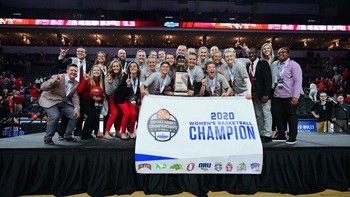Researchers to Train STEM Students for Business
Fewer STEM Ph.D. students are obtaining tenure-track positions in higher education, so STEM graduate degree holders are increasingly finding work in non-academic fields that requires new professional skills for various career paths.
Brian Burrell, Ph.D., and Ranjit Koodali, Ph.D., will receive $2.9 million over five years from the NSF for the USD Neuroscience and Nanotechnology Network (USD-N3). Burrell is an associate professor in the division of basic biomedical sciences and associate director of the Center for Brain & Behavior Research (CBBRe) at the USD Sanford School of Medicine. Koodali is a professor in department of chemistry and dean of graduate education at USD.
The USD network, a joint effort between CBBRe and the chemistry and basic biomedical science departments, will train about 40 graduate students over five years.
Students accepted into the program will conduct research focused on developing nanotechnology-based approaches to study and treat the brain in a variety of disciplines, including science policy and project management.
Students will also learn about disciplines outside the sciences such as finance, product development, entrepreneurship and intellectual property rights through the USD Beacom School of Business and have the opportunity to participate in internships with regional and national companies. The directors hope to add additional training options in education and scientific writing.
What is novel about this program is that STEM graduate students will be able to develop interdisciplinary skills and expertise in both science and non-science disciplines, allowing them to tailor the training program to their interests and career goals.
Download a photo: USD researchers Ranjit Koodali and Brian Burrell will use a $2.9 million NSF grant to train STEM students.


